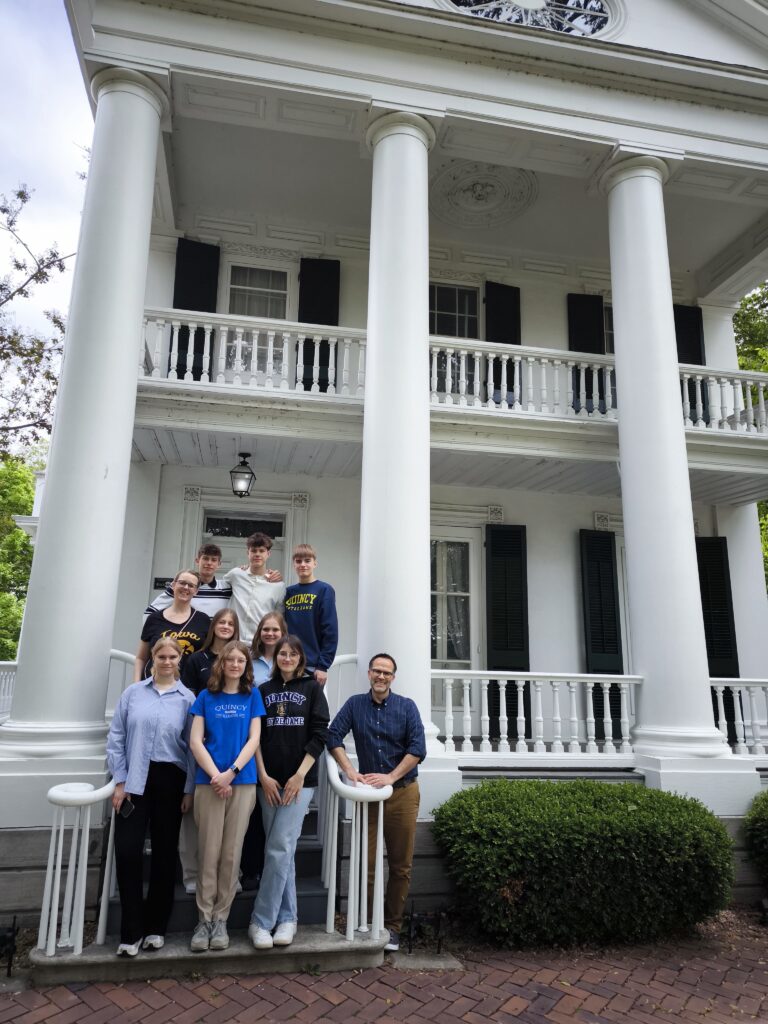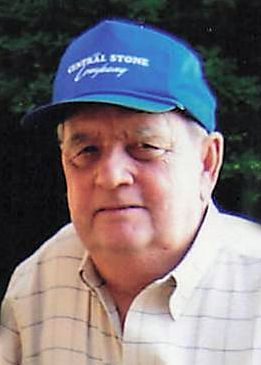‘A win-win for both sides of the ocean’: Sister City exchange with Herford, Germany, continues to flourish

QUINCY — Friedel Schuette, a German hobby historian, sent a letter to Quincy in 1985. Mecki Kosin, a native of Germany, was asked to translate the letter, which was written half in German.
“The letter basically asked, ‘What happened to the 200 families that came from our county in Herford Germany to Quincy and Adams County? Did they stay? Did they move on? What happened to them?’” Kosin recalled.
Kosin recognized that many of the last names of the German immigrants were still present in Quincy, both within families and on tombstones. The connection between Herford and Quincy was apparent.
By 1988, an official sister city partnership was formed. Adult exchanges followed, and a high school program started in 2011.
The program is still going strong today, evident with the recent 10-day visit of eight German high schoolers. The students lived with families, attended classes at Quincy Notre Dame and visited both St. Louis and Chicago. They left Quincy on Tuesday.
“You see so many German names on graves,” said Hendrik Kellner, the German teacher who has helped lead seven exchanges. “Whenever I come here, I think, ‘What would have happened if they stayed at home?’ Probably their grandchildren would be my neighbors now.”
Before visiting, many students based their perception of the United States on television shows.
“We know a lot of things about the USA,” Aline Dembert said. “I like ‘Modern Family,’ ‘How I Met your Mother’ and ‘Brooklyn 99.’”
What TV shows can’t provide is a first-hand experience.
During the program, the German students are “not tourists,” Kellner said. “They live in families. They can use the fridge. They do what the American kids do.”
German student Marieke Hansel noted on the social differences.
“Americans are a lot more talking to people they don’t know,” she said. “In Germany, you wouldn’t get asked on the streets like, ‘How is your day?’”
The students also noticed the proliferation of fast-food options.
“I was at Wendy’s. I really liked that,” Dembert said. “And Dunkin’ Donuts!”
The program is supported by The Sister City Committee, the German American Partnership Program and Quincy Notre Dame.

QND principal Mark McDowell loves the program.
“We’ve been doing this for many, many years, and it’s been a win-win for both sides of the ocean,” he said. “Above all else is the authenticity of the relationship.”
Indeed, authentic and lasting relationships have formed. Mary-Ann Ervin, a host for many years, is traveling to Germany this summer to attend a wedding for one of the people who stayed with her and her husband, Eric. Another student she hosted flew across the ocean to surprise her son at his own wedding.
Ervin quoted Fred Bloss, a retired German teacher at QND.
“They arrive here in Quincy as strangers. When they leave, it’s like part of the family is going home,” she said.
The program demystifies American immigration.
“It’s not just some anonymous place somewhere in America,” Hendrik said, “but this is the place some of our ancestors chose to live and and to go to for many reasons.”
Many Germans made that choice.
Between 1840 and 1870, 10,500 Germans game to Quincy, according to U.S. census records, and 43 percent of Quincy’s 1870 population were of German descent. The Herald-Whig reported in 1990 that 56 percent of Quincy residents still had German ancestry.
Quincy has similar seasons and topography to Herford, and it was accessible to travellers via the Mississippi River.
Kosin has a further explanation as to why the Germans chose Quincy. She said a Lutheran pastor was asked to leave Germany because he was preaching against the crown. He ended up in Quincy, befriended John Wood and bought land.
“This pastor wrote glowing letters home, saying, you know, milk and honey is in the streams and the streets are paved with gold,” Kosin said. “He stuck it to them because they had kicked him out. They came here, and it was pretty much the same.”
Annie C. Reller is a Seattle native and a recent Stanford graduate serving as an intern for Muddy River News this spring.
Miss Clipping Out Stories to Save for Later?
Click the Purchase Story button below to order a print of this story. We will print it for you on matte photo paper to keep forever.

